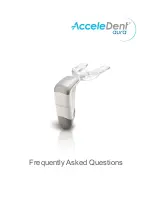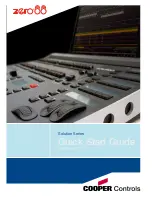
29 |
A.L.P.S.
Hand Fracture System
Special precautions are necessary if a temporary
internal fixation device is used to treat an unstable
intertrochanteric fracture of a subtrochanteric
fracture. These fractures are more difficult to
reduce and result in unusually strong unbalanced
muscle forces which cause greater stress to be
transmitted to the temporary internal fixation
device than with other types of femoral fractures.
These stresses increase the possibility of implant
bending or breakage.
NOTE:
Postoperative care is
extremely
important.
The patient must be warned that noncompliance
with postoperative instruction could lead to
breakage of the implant requiring revision surgery
to remove the device.
2.
CORRECT SELECTION OF THE IMPLANT IS
EXTREMELY IMPORTANT.
The potential for
success in fracture fixation is increased by the
selection of the proper size, shape and design of
the implants.
3. Preoperative and operative procedures, including
knowledge of surgical techniques, good reduction,
proper selection and placement of the implants
are important considerations in the successful
utilization of temporary internal fixation devices.
See the surgical technique for specific surgical
procedure.
4. In evaluating patients for orthopaedic appliance
application, the patient’s weight, occupation,
activity level, mental condition, foreign body
sensitivity and any degenerative diseases are of
extreme importance to the eventual success of the
procedure. These conditions must be evaluated as
part of the preoperative planning.
5.
CORRECT HANDLING OF IMPLANTS IS
EXTREMELY IMPORTANT.
Avoid contouring
metallic implants unless allowed by design. When
contouring, the device should not be bent sharply,
reverse bent, notched or scratched. All of these
operations can produce defects in the surface
finish and internal stress concentrations, which
may become the focal point for eventual failure of
the appliance.
6. If metal screws, wire bands or other metallic
devices are to be used together with a particular
temporary internal fixation device, intramedullary
nail, plates or screw-plate combination, all such
devices should be manufactured from a metal that
has a similar composition to avert the possibility
of galvanic corrosion or other metallic reactions,
unless directed to be used together by the
manufacturer.
7.
AN IMPLANT SHOULD NEVER BE RE-USED.
Any
implant, once used, should be discarded. Even
though it appears undamaged, it may have small
defects and internal stress patterns that may lead
to failure. These Single Use devices have not been
designed to undergo or withstand any form of
alteration, such as disassembly, cleaning or re-
sterilization, after a single patient use. Reuse can
potentially compromise device performance and
patient safety.
8. Detailed written instructions on the use and
limitations of the device should be given to the
patient. If partial weight bearing is recommended
or required prior to firm bony union, the patient
must be warned that bending or breakage of the
device are complications which may occur as a
result of weight bearing or muscle activity. An
active patient, debilitated or demented patient
who cannot properly utilize weight support devices
may be particularly at risk during postoperative
rehabilitation.
9.
REMOVAL OF THE DEVICE.
While the surgeon
must make the final decision on implant removal,
whenever possible and practical for the individual
patient, fixation devices should be removed once
their service as an aid to healing is accomplished.
Great care must be taken when following the
technique for removal of the device or appliance.
10. Orthopaedic and Compression Hip Screws.
WARNING:
This device is not approved for screw
attachment or fixation to the posterior elements
(pedicles) of the cervical, thoracic, or lumbar spine.
11. Do NOT remove pre-assembled F.A.S.T Guide
®
inserts (where provided) prior to sterilization.
Remove and discard all F.A.S.T Guide inserts
AFTER use.
12. The orthopaedic screws, intramedullary nails,
plates, compression hip screws, pins and wires in
their respective systems have not been evaluated
for safety and compatibility in the magnetic
resonance (MR) environment and have not
been tested for heating or migration in the MR
environment.
Summary of Contents for A.L.P.S.
Page 1: ...A L P S Hand Fracture System Surgical Technique ...
Page 2: ...2 A L P S Hand Fracture System ...
Page 4: ...2 A L P S Hand Fracture System ...
Page 6: ...4 A L P S Hand Fracture System ...
Page 8: ...6 A L P S Hand Fracture System ...


































